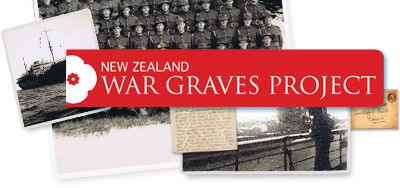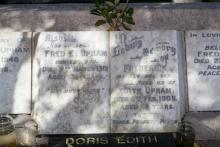Embarked Wellington for the purpose of medical examination; found unfit and discharged, 16 September 1914.
Re-attested Trentham, 12 October 1915; found unfit and discharged, 16 February 1916.
Re-attested Featherston Camp, 27 June 1916; found unfit and discharged, 2 August 1916.
Enlisted 13 March 1917; posted to 30th Reinforcement with the rank of Corporal.
Reverted to the ranks at his own request, 14 April 1917, and posted to B Company, 27th (Cenotaph)
Entered camp in the UK, in Sept.1917, but soon deserted and was struck off the roll. He was "marched in under escort" in February 1918, but spent all of his time overseas between hospitals in England before being bought back to New Zealand as "Mentally Unfit"
“A young gentleman named Frederick Edward Upham made his bow before Mr. L. G. Reid, S.M., at the Wellington S.M.s Court on Thursday, and was asked a few questions about his manner of obtaining board and lodgings to the tune of one "quid," and for which he had not "parted" to A. M. Russell. Fred had been one of the Samoan heroes, and had returned to the land of pig and fernroot with TALES OF VALOR AND STRIFE at Gallipoli. He had told of an air alive with bursting shells, of hordes of savage Turks beaten off by the bravery of "our boys." He had seen New Zealand's sons fall in the tight for honour and world-freedom. He told of stirring adventures by flood and field, the while his listeners with baited breath were, baited for their board money. In consideration of his services in having caused whole squadrons of Abdullahs to fly like frightened fawns, he was said (it was he who said it) to be in receipt of a monetary consideration from the magnanimous Maoriland Government. Later on it was ascertained that the only animal life which had been destroyed by Fred was the voracious Samoan flea. Then the aid of the "polls" was invoked, and Fred received free lodging for a while, during which time the "John -Hop" Department investigated, with the result that Fred had to answer one charge of obtaining board by false pretences and another of forging a military discharge. The accused was represented by Mr. 0..C. Mazengarb, who pleaded that the accused had "contracted a physical defect" while in the isle of coral and palm, which accounted his attempting to palm himself off as a returned hero. It was hinted that ”the machinery in his upper story” was not working well, and that he imagined vain things. In the meantime, the boarding house keeper raged for his money. He contended that the discharge business was not altogether a forgery. The S.M. characterised ' the boarding house stunt as A 'PARTICULARLY MEAN ONE', and fined Fred £2, with an order to pay the pound for board or be impounded for fourteen days. On the charge of altering his military discharge he was remanded for one week, ball being allowed in a sum of £25.”
[NZ Truth, Issue 591, 14 October 1916, Page 6]
“The circumstances of the death, of a returned soldier named Frederick Edwin Upham, 28 years of age, who died on Sunday morning, were investigated by the Coroner, Mr. W. G. Eiddell, S.M., yesterday. Evidence was given that deceased returned to the Dominion about August, 1918, suffering from shell shock. Dr. AV. Kington Fyffe, who made a post mortem examination of the body of the deceased, stated that the cause of death was haemorrhage of the left side of the brain. There was no fracture of the skull. Other evidence was given that deceased used to complain of headaches. On Saturday afternoon he went to the Basin Reserve to see the cricket match, and between 4 and 5 o'clock he was taken to his home, 17 Webb Street, in an unconscious condition. Dr. Line was summoned, but deceased never recovered consciousness and died about 4.20 o'clock on Sunday morning. Constable Gunn, of Mount Cook, stated that he was speaking to the deceased at the Basin Reserve on Saturday afternoon, when he complained of a severe pain in the head. Witness heard that deceased died on Sunday morning and removed his body to the morgue. The Coroner returned a verdict that the cause of death, was haemorrhage of the left side of the brain. There was no doubt that deceased suffered from some injury to his brain, but as to how it arose there was no accounting.”
[Dominion, Volume 12, Issue 136, 4 March 1919, Page 6]



